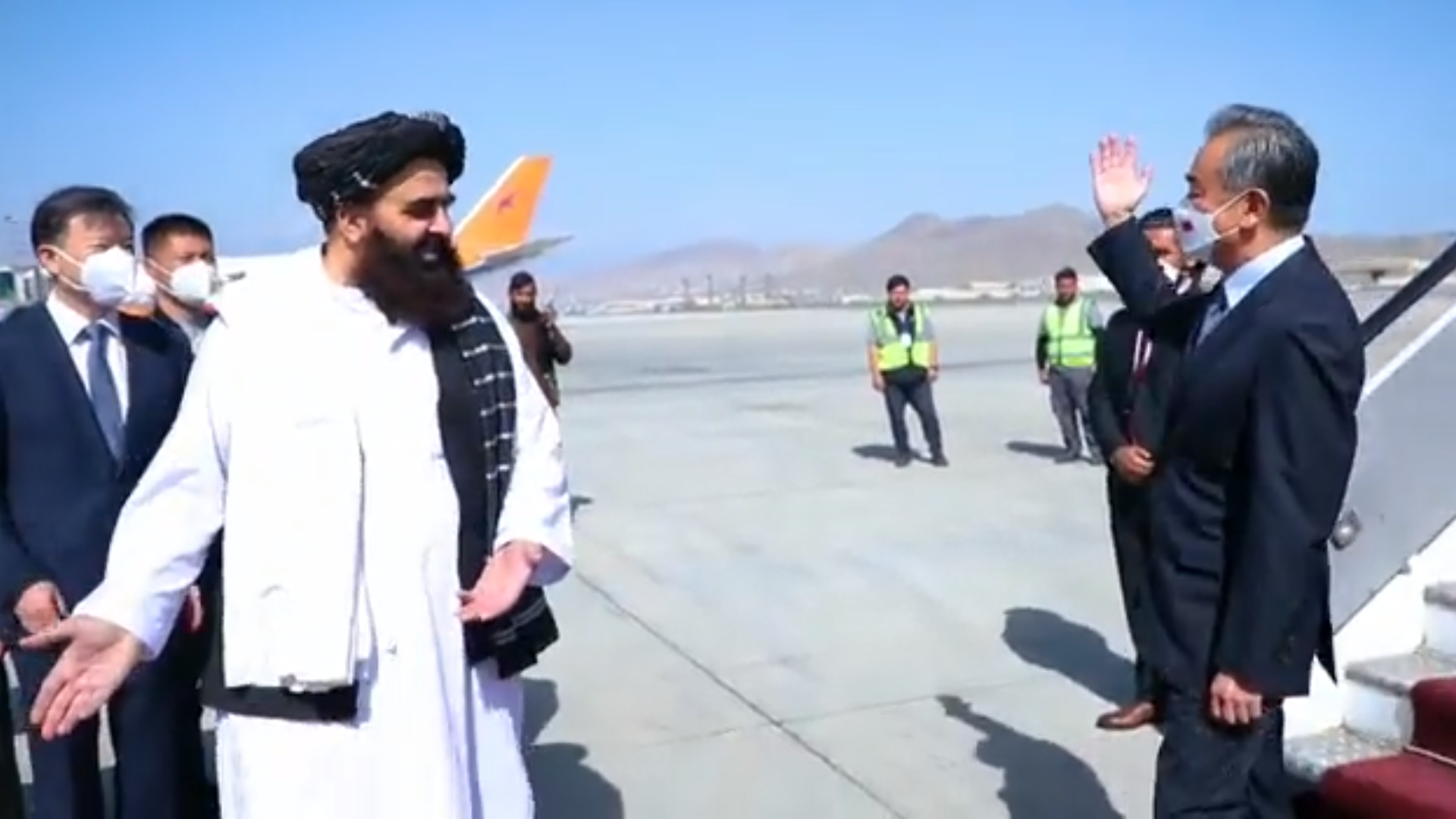Chinese FM Wang Yi Makes First Visit to Taliban-Ruled Kabul in Unannounced Stopover
20:15 GMT 24.03.2022 (Updated: 18:35 GMT 19.10.2022)
Subscribe
Amid a tour of central and southern Asia this week, Chinese Foreign Minister and State Councillor Wang Yi stopped in Kabul, Afghanistan - his first trip to the country since the Taliban* took power last August.
Wang’s trip was not announced by the Chinese Foreign Ministry, and spokesperson Wang Wenbin told reporters on Thursday morning that “if there is any information on that, we will release it in a timely manner.”
Instead, the notice came from the Taliban, with Ahmad Yasir, a high-ranking government official, tweeting Wang’s arrival. A video he retweeted showed Wang being greeted off the plane by Afghan Foreign Minister Amir Khan Muttaqi, and their two delegations sitting around a table, reportedly discussing issues.
د چین د بهرنیو چارو وزیر نن په یوه ځانګړي سفر افغانستان ته راغی او د افغانستان د بهرنیو چارو له وزیر محترم متقي صاحب سره یې پر ګڼو مهمو موضوعاتو خبرې وکړي او د اسلامي امارت له نورو مشرانو سره یې مجالس دوام لري. pic.twitter.com/t6KDwzasuJ
— انورالحق Anwarulhaq (@Anwarulhaq67) March 24, 2022
Eight months earlier, Kabul’s main airport was the site of a drama watched by the entire globe as US troops struggled to evacuate their last remaining forces, along with tens of thousands of refugees, their puppet government having already collapsed amid the Taliban offensive. The humiliating situation capped off a failed 20-year occupation war and “reconstruction” effort that has been said to have cost the US trillions of dollars.
While many nations have hesitated to recognize the Islamist group as Afghanistan’s government, Beijing had no such scruples, making deals with the Taliban even before their victory was complete. Wang had previously met with Taliban officials in Tianjin in July and then in Doha in October.
According to their terms, the group would have to renounce its support for the East Turkestan Islamic Movement (ETIM) and stop letting the ETIM use Afghan territory to stage terrorist attacks inside China. Another Islamist group with ties to Al-Qaeda**, ETIM seeks to separate China’s Xinjiang Autonomous Region into an independent state and has dispatched fighters to both Afghanistan and Syria’s Idlib region.
In exchange, the Taliban would get help from Beijing rebuilding Afghanistan. While some Chinese businesses have returned, the going is slow and investment falls far short of the hundreds of billions in aid and subsidies the US and various international aid groups sent to Afghanistan prior to the Taliban takeover. According to a recent report by UN Resident and Humanitarian Coordinator Ramiz Alakbarov, 95% of the Afghan population is without adequate food, and the Afghan Ministry of Public Health reported recently that 13,700 Afghan newborns have died from malnutrition and hunger-related diseases since the start of 2022.
When the Taliban initially came to power in 1996, it was treated as an international pariah, and economic malaise in the impoverished central Asian country intensified. However, the second time around, regional powers have looked to help stabilize Taliban rule and have sought moderate it to respect rights for women and ethnic minorities and end its support for terrorist groups.
On Tuesday, Wang met with his Pakistani counterpart, Shah Mahmood Qureshi and reiterated that the Taliban government should be “sternly fighting against any forms of terrorism.” Later this month, Beijing will host a meeting of foreign ministers representing Afghanistan’s neighbors, to discuss the humanitarian situation in Afghanistan.
*The Taliban: a group under United Nations sanction for terrorist activities
**Al-Qaeda: a terrorist group banned in Russia and many other countries


